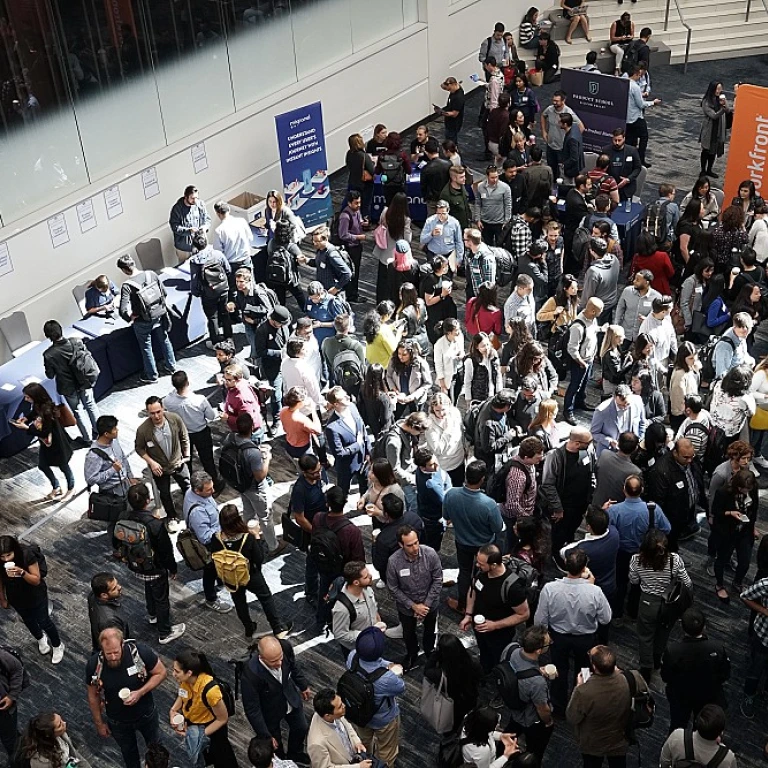
Understanding the Role of a Software Engineer Recruiter
Diving into the World of Software Engineer Recruitment
In the rapidly evolving tech landscape, understanding the multifaceted role of a software engineer recruiter is both essential and complex. These professionals are integral to the hiring process, acting as the bridge between companies and the talent they need to drive their business forward.
Software engineer recruiters are responsible for managing the entire recruitment lifecycle. This includes collaborating with hiring managers to understand specific staffing needs, crafting effective job descriptions, sourcing both passive and active job seekers, and conducting insightful interviews. Their goal is to ensure they attract the best candidates who not only possess the required technical skills but also align well with the company's culture and long-term vision.
In a world filled with staffing agencies, recruiting firms, and nexus groups like Insight Global and Redshift Recruiting, the expertise of a skilled recruiter can make a significant difference in the quality and efficiency of the hiring process. These recruiters utilize a variety of strategies to tap into a vast pool of software developers, software engineers, and full stack experts across the global market.
With the software development industry constantly growing, engineering recruiters must stay updated on the latest tools, trends, and technologies. This ensures they can effectively evaluate candidates and align them with the right opportunities.
To further enhance your understanding of the intricate world of software engineer recruitment, you can explore more about how to navigate the world of engineering recruitment agencies. This insight can provide deeper clarity into the critical role and responsibilities of these recruiters.
Identifying Key Skills and Qualifications
Spotting the Right Mix of Skills
When diving into the recruiting process, pinpointing the essential skills and qualifications that a software developer needs is paramount. To set the stage for successful staffing, it is important to delineate between technical proficiency and more intangible attributes that can greatly impact the long-term success of your recruitment strategy.
Here’s a quick rundown on how to identify the vital skills for software engineers:
- Technical Expertise: It is essential that candidates hold proficiency in fundamental programming languages and frameworks such as Python, Java, JavaScript, and React. Experience with advanced tools like Redshift and AWS can also set a potential hire apart.
- Problem-Solving Abilities: Effective developers are equipped with analytical skills that help navigate complex coding challenges and convert technical plans into actionable tasks.
- Soft Skills: While technical prowess is crucial, candidates also need to demonstrate competencies such as strong communication skills and teamwork, which contribute to better interaction within a company’s tech and development teams.
- Adaptability: As the tech landscape is constantly evolving, tech recruiters should look for those who possess an eagerness to learn and adapt to new trends and technologies.
- Cultural Fit: Cultural alignment is an essential aspect of talent acquisition and can be explored further in our comprehensive guide on the topic.
While engineering recruiters based in various staffing agencies like Insight Global or Redshift Recruiting consider these qualifications when sourcing candidates, it's vital that tech companies fine-tune these criteria based on specific project needs. Tailoring this framework allows recruiters to meticulously filter potential hires who offer robust technical and cultural value to their team. Additionally, aligning the recruitment process with company-specific objectives ensures a fruitful hiring process, ultimately fostering a high-caliber pool of software engineering talent.
Crafting an Effective Job Description
Designing an Attractive Software Engineer Position
Drafting a job description that attracts top software developers is a crucial step in the recruiting process. To attract the best talent, companies must convey their expectations and responsibilities clearly while also highlighting what makes their work environment unique.- Details Matter: Be comprehensive in describing the role. Specify the technical expertise required, such as proficiency in languages or platforms like Java, Python, or full stack development. Clearly outlining the tech skills helps both recruiters and job seekers assess suitability.
- Skills and Qualifications: Don’t only focus on software engineering competencies. Consider the importance of problem-solving capabilities, communication skills, and teamwork in your hiring decision. These soft skills contribute to the long-term success of new hires.
- Cultural Insight: Reflect your company ethos. Express what makes your company culture unique and emphasize how the role fits within the larger context of your team. Highlighting development opportunities or innovative projects can draw in candidates eager for growth.
- Compensation and Benefits: Provide a transparent view of salary ranges and any perks offered. Competitive salaries and compelling benefits packages can tip the scale in your favor against other software recruiting firms.
Sourcing Candidates: Where to Look
Maximizing Your Talent Pool: Where to Find Top Software Engineers
In the competitive realm of software development recruiters face the challenge of sourcing high-quality talent that matches the companies' specific needs. Knowing where to look can save time and resources in the recruitment process, ultimately affecting long-term success.
Here are some of the most effective avenues dedicated to discovering exceptional software engineers:
- Online Job Boards and Websites: Start with popular job boards like Indeed, Glassdoor, and LinkedIn. These platforms allow recruiters to post detailed job descriptions and reach a broad audience of job seekers. Engaging actively on these platforms increases the visibility of your job openings.
- Specialized Tech Platforms: Websites like GitHub and Stack Overflow house vibrant communities of developers and are ideal for identifying candidates actively engaged in coding and problem-solving environments. Showcasing open positions there can connect you with software engineers who are passionate about tech development.
- Networking Events and Tech Meetups: Attending industry conferences, panels, and local meetups can help you network with potential candidates. It offers an opportunity to engage with talent in a face-to-face setting, providing better insight into their capabilities and cultural fit.
- Staffing Agencies and Recruiting Firms: Partnering with specialized establishments such as Insight Global or Redshift Recruiting leverages their expertise and established connections to source top software developers efficiently. This approach can streamline the hiring process significantly.
- University Recruitment: Colleges and universities are excellent places to begin identifying and nurturing entry-level talent. Engaging in career fairs or partnering with academic programs can open channels for recruiting fresh graduates with up-to-date knowledge in software engineering.
- Employee Referrals: Utilize your current employees as a recruitment resource. Encourage them to refer qualified candidates by implementing a referral program. This not only taps into their networks but also increases the likelihood of hiring individuals who are a strong cultural fit with the company ethos.
By diversifying your sourcing strategies, your company can effectively capture the attention of top software engineers. Implementing these approaches ensures a robust hiring process and sustains a pool of qualified candidates capable of meeting your company's engineering needs.
Interviewing Techniques for Software Engineers
Conducting Effective Technical Interviews
Interviewing software engineers is a multi-faceted process that requires precision and a deep understanding of the role. This crucial step in the recruitment journey is where companies gauge not only the technical abilities of candidates but also their problem-solving skills and capacity to adapt to different challenges in software development. To execute productive interviews, it's crucial to incorporate specific strategies that align with the current tech industry standards. Define Clear Objectives Before diving into the interview, establish what technical competencies are essential for the role. Recognizing these key skills will enable recruiters to focus on what's important, whether it's full stack development skills, proficiency in the latest software engineering tools, or expertise in specific programming languages. Focus on Problem-Solving Engineers are often valued for their problem-solving capabilities. Incorporate questions or practical scenarios that simulate real-world technical challenges. This allows candidates to demonstrate their approach to coding problems, optimizing performance, and other critical thinking skills intrinsic to effective software engineers. Utilize Technical Assessments Platforms that offer coding assessments or hands-on exercises can be valuable in evaluating a software engineer's proficiency. These assessments often prepare candidates for the technical demands they'll face in the role. Leverage resources like Nexus Group or Insight Global as partners to streamline this aspect of the hiring process. Assess Communication Skills While technical skills are paramount, don't overlook the importance of communication. Ensure candidates can articulate their thought processes clearly and work effectively within a team. Software development is often collaborative, and a candidate’s ability to communicate ideas and challenges clearly is crucial for long-term success. Include Cultural Fit Considerations Lastly, interviews are a chance to assess cultural fit and growth potential within your company. Ask questions that reveal a candidate’s values and work style. For more insights into understanding these dynamics, consider engaging with staffing agencies like Redshift Recruiting or development recruiters. Incorporating these techniques will not only improve the effectiveness of your interviews but also enhance your ability to identify top software engineers who align with your company’s long-term objectives.Evaluating Cultural Fit and Long-Term Potential
Assessing Alignment with Company Culture and Prospects for Growth
Understanding technical skills is crucial, yet evaluating a candidate’s cultural fit and their potential for long-term success within a company is equally essential in the hiring process. Many software companies today emphasize the importance of alignment with their core values and mission, recognizing that skills alone don't guarantee successful integration into an existing team. Cultural fit is a nuanced concept in the tech recruiting world, involving a thorough understanding of both the candidate's and the company's work environment preferences. Here are several strategies to examine this aspect:- Evaluate organizational culture: Start by understanding your own company's culture. This knowledge will guide you in identifying traits and personality types that resonate with existing staff and company ethos.
- Pre-interview assessments: Utilize personality and cultural fit assessments as part of the recruitment process. These tools offer insights into a candidate’s work style, adaptability, and how they might interact with your current team.
- Career progression: Discuss past career trajectories with the candidate to understand their growth ambitions and willingness to tackle new challenges.
- Investment in personal development: Gauge their interest in ongoing education, such as participation in development courses or tech conferences.












